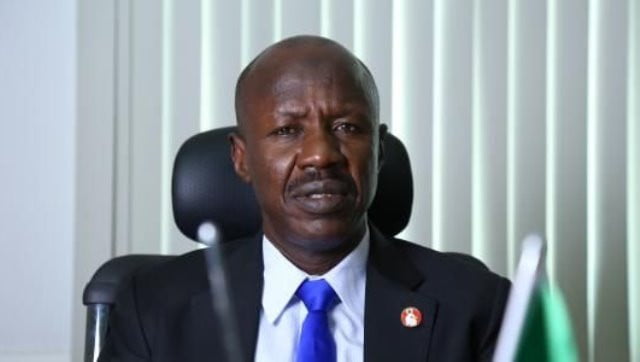Nigeria News
What The Law Says About EFCC Chairman’s Appointment

The Suspension of the Acting Chairman of the Economic and Financial Crimes Commission (EFCC), Ibrahim Magu has attracted several reactions from many Nigerians after a presidential panel found him guilty of corruption.
However, a source who is familiar with the activities of the Presidential investigative panel, says the decision to suspend Magu is in line with international practice in such matters.
He noted that it is wrong to allow Magu to continue as the head of an establishment or organisation which he is being probed for
As seen on Premiumtimes, here are some of the procedures, terms and conditions for appointment of Chairman of the EFCC.
Procedure for appointment
A look into Section 2(3) of the EFCC Act, 2005, shows that the most-senior EFCC official next to Mr Magu “with 15 years experience as a security operative” is expected to take charge as the head of the commission.
But the provisions of the Act clearly empowers the President “to remove officials of the commission indicted for misconduct”.
“Where a vacancy occurs in the membership of the Commission, it shall be filled by the appointment of a successor to hold office for the remainder of the term of office of his predecessor, however, that the successor shall represent the same interest as his predecessor,” the EFCC Act said.
The Commission’s Act also says a chairman “must be a serving or retired member of any government security or law enforcement agency not below the rank of Assistant Commissioner of Police or equivalent; possess not less than 15 years experience.
“The chairman shall be responsible for the investigation of all financial crimes including advance fee fraud, money laundering, counterfeiting, illegal charge transfers, futures market fraud, fraudulent encashment of negotiable instruments, computer credit card fraud, contract scam, etc.
“A member of the Commission may at any time be removed by the President for inability to discharge the functions of his office (whether arising from infirmity of mind or body or any other cause) or for misconduct or if the President is satisfied that it is not in the interest of the Commission or the interest of the public that the member should continue in office.”












